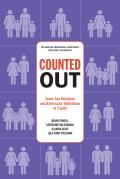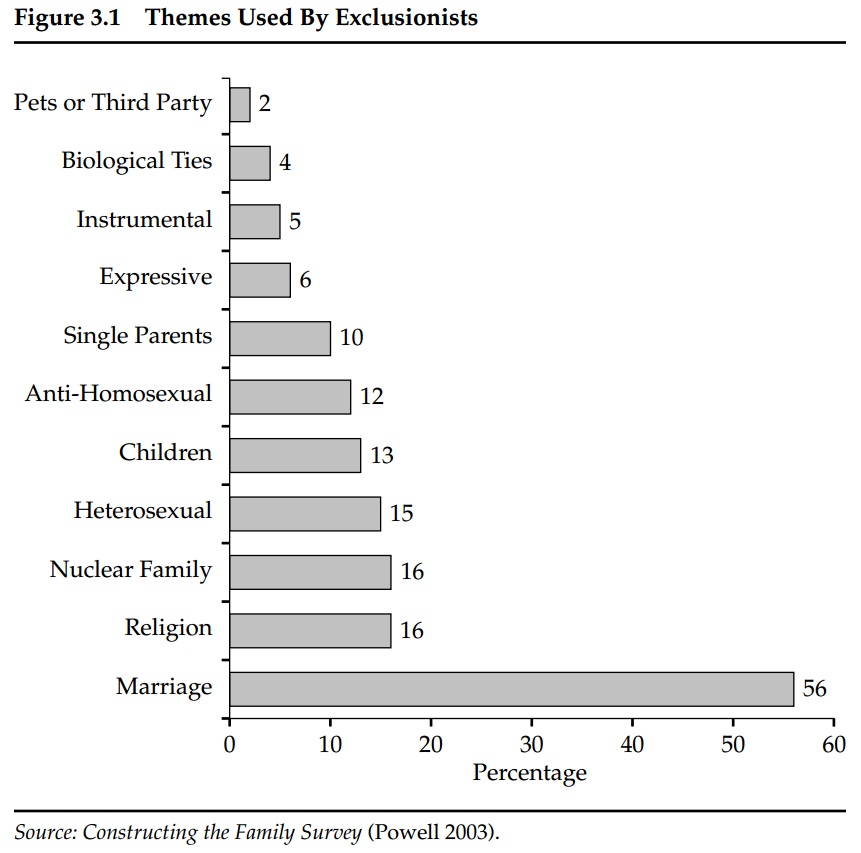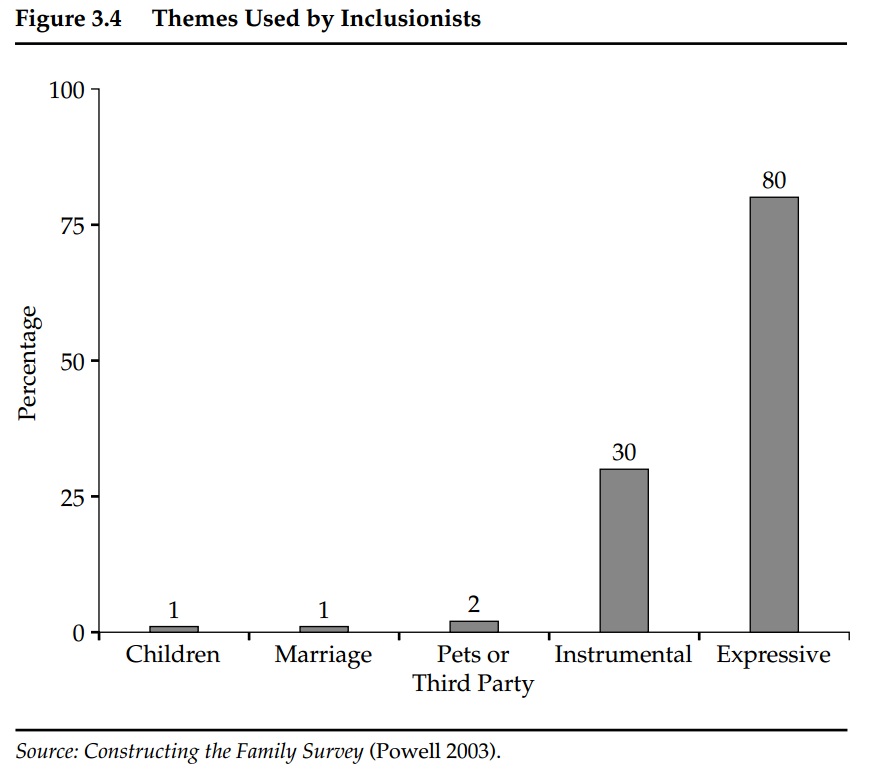How Americans Talk About Family and Same-Sex Marriage
 When sociologist Brian Powell and his team asked more than 1,500 Americans to define what counts as family, he found that respondents fell into three broad categories:
When sociologist Brian Powell and his team asked more than 1,500 Americans to define what counts as family, he found that respondents fell into three broad categories:
•Exclusionists (roughly 45 percent of his sample) strongly privilege the traditional heterosexual family;
• Moderates (roughly 29 percent) place more primacy on children and extend family status to any arrangement with children;
• Inclusionists (25 percent) have a broad conception of family that is flexible and expansive.
Digging deeper, Powell analyzed the themes and reasons each group invoked to explain why they believed certain living arrangements counted (or did not count) as family. Here are the themes used by people in the 'exclusionist' category:

In his RSF book, Counted Out: Same-Sex Relations and Americans' Definitions of Family, Powell elaborates:
The transcripts of our interviews are replete with phrases such as "the marriage vow," "the marriage covenant," "ceremonial arrangements," "legal marriage," "legal connection," and "legally binding." In their references to marriage, exclusionists also often mentioned the gender of the marital partners—most notably specifying them as "man and wife," "man and wife living together," or "marriage between a man and a woman"—thus making it explicit that their definition excluded gay and lesbian couples.
Here are the themes most used by inclusionists:

Powell explains:
Inclusionists' choice of words was diametrically opposite from those used by exclusionists. Words connoting structure were secondary to words signifying affective ties. In fact, some words that were prominently used by exclusionists do not even appear in the inclusionist word count—most notably "marriage" and "married."
For inclusionists, the key factor in defining a family was not a legal document, or the presence of children. Instead, how people within a given living arrangement felt about, treated, and interacted with each other determined their family status.
For more information, you can read the opening chapter of Powell's book, or browse through his charts and figures.
